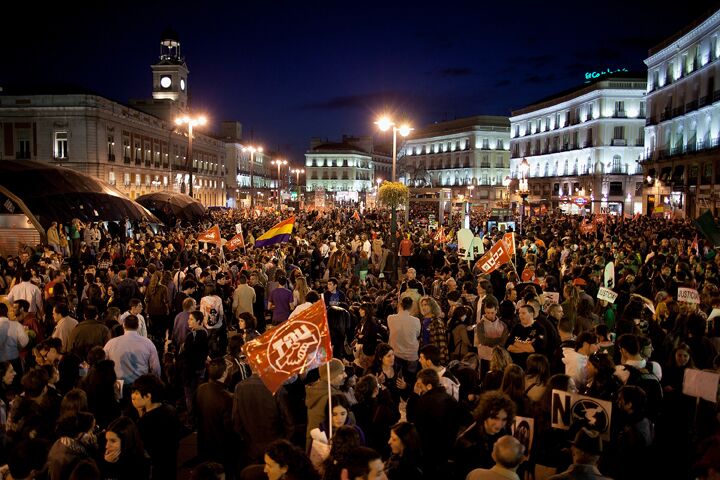
Spain Clamps Down on Protesters as Nation Edges Toward a Bailout
The interest rates of 10-year Spanish government bonds reached 5.99 percent on April 10—the highest since December 12—close to the danger zone that has forced other nations to ask for a bailout.
For the past few months the European Central Bank (ecb) has been flooding the market with cheap credit through its long-term refinancing operations (ltro). This has dealt with some of the surface problems and kept the eurozone ticking over and out of the headlines. But now that the money spigot has been turned off, the euro’s troubles are emerging again.
“Spain and Italy could not live with today’s borrowing costs for long unless the outlook for their economies were to improve dramatically,” writes the Economist. “So they may have to look to outside help.”
“What’s happening in Spain is nothing short of a disaster—one that may, in time, come to rival that in Greece,” writes Daniel Knowles in the Telegraph. “Youth unemployment has climbed above 50 percent, while unemployment generally is at around 23 percent. The Bank of Spain expects gdp to fall by 1.5 percent this year, while the imf thinks that the country might have two more years of recession.”
Andrew Roberts, head of European rates strategy at the Royal Bank of Scotland, also called the situation a “disaster.”
“The banks are deeply underwater,” he said. “This is turning into a disaster for the eurozone periphery now that the liquidity tap has been turned off. But given the opposition in Germany, the ecb can’t easily do another ltro until there is a major crisis.”
With Spain headed for disaster with youth unemployment at over 50 percent, it is no wonder that Spanish Interior Minister Jorge Fernandez Diaz announced April 11 that street protests that “seriously disturb the public peace” will be outlawed. Anyone found guilty of provoking or taking part in violent acts of protest could be jailed for a minimum of two years.
His changes will make it “an offense to breach authority using mass active or passive resistance against security forces and to include as a crime of assault any threatening or intimidating behavior,” he said.
Opponents of these changes plan on protesting April 14, comparing these rules to General Franco’s dictatorship.
The Trumpet has been warning that this kind of social unrest will only get worse in Europe. “Social unrest and riots will eventually force Europeans to succumb to a strong united government of Europe, led ultimately not from Brussels, but from Berlin,” wrote editor in chief Gerald Flurry in 2008.
This crisis was designed to force eurozone nations to succumb to this kind of government. Faced with riots and bankruptcy, they’ll have no choice but to come under a German-led EU government.
For more information, see our article “Crisis in Europe: A Classic Whodunit.”
